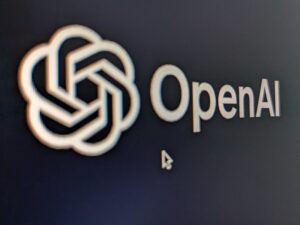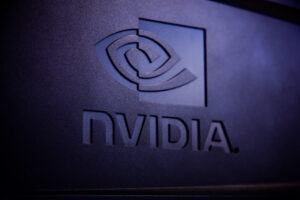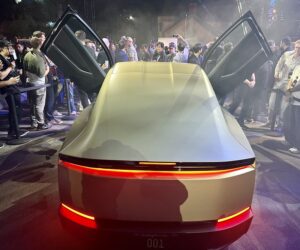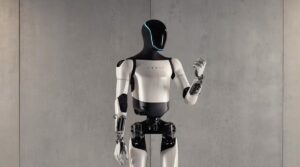A comprehensive summary of five representative US AI companies and AI utilization cases
Recently, artificial intelligence (AI) has gone beyond simple research and development and has become a key driving force in real life and global business. In particular, technologies such as generative AI are causing explosive changes in various fields such as content creation, customer response, and industrial automation, and are having a real impact on corporate strategies and consumers' daily lives. At the center of this trend are large American technology companies, and they are the fastest to commercialize AI technology based on their massive capital and technological capabilities.
Big tech companies in the U.S. are not only integrating AI into their core services, but are also strengthening their global AI competitiveness in various ways, such as developing their own large-scale language models (LLMs), securing AI semiconductor infrastructure, and expanding the open source ecosystem. As a result, their technologies are going beyond simple tools and bringing structural innovation to industries such as healthcare, finance, education, and manufacturing, and are becoming a benchmark for leading the global AI market.
In today’s post, we will select five leading AI companies representing the United States and introduce each company’s main AI technology, commercialization strategy, and real-life cases in detail. We will take a deep look at what changes are currently taking place at the forefront of AI technology and how they are affecting our daily lives and industries.
1. OpenAI – A leader in generative AI technology

Year of establishment: 2015
Core Objectives: Development of general artificial intelligence beneficial to humanity
🔹 Key Technologies
-
Large-Scale Language Model (LLM): Transformer-based, GPT series
-
Multimodal AI: Integrate and create text, images, audio, etc.
🔹 AI Utilization Cases
-
ChatGPT: Customer service, virtual assistant, educational tutor, etc.
-
Content Creation: Automating your blog, marketing copy, and product descriptions
-
Code generation and bug detection: GitHub Copilot
🔹 Market Impact
-
In various industries Automation of businessand Increase productivity realization
-
Widely adopted by companies from startups to large corporations as API-based services
2. NVIDIA – A leader in AI infrastructure and autonomous driving technology

Year of establishment: 1993
genesis: Transitioning from a GPU specialist manufacturer to an AI infrastructure provider
🔹 Key Technologies
-
CUDA Architecture: GPU-based parallel computing acceleration
-
AI Supercomputer (DGX Series): Support for large-scale model learning
-
Omniverse: Digital Twin·Robot Simulation Platform
🔹 AI Utilization Cases
-
Autonomous Driving Platform (NVIDIA DRIVE): Object recognition, path planning
-
Healthcare AI: Medical image analysis, new drug development simulation
-
Industrial Automation: Smart factory, quality control robot
🔹 Market Impact
-
AI researcher, cloud service company Standard Platform
-
AWS, GCP, and Azure all adopt NVIDIA GPUs
3. Google (Alphabet) – Expanding AI Beyond Search

Year of establishment: 1998
AI-focused subsidiary: DeepMind, Google Brain
🔹 Key Technologies
-
BERT, Transformer-based NLP: Improving the accuracy of natural language understanding
-
TensorFlow, JAX: AI development framework
-
Reinforcement learning: Data center operation optimization, game AI
🔹 AI Utilization Cases
-
Google Search Optimization: Provide context-based results
-
Google Translate: Real-time translation in over 100 languages
-
DeepMind AlphaFold: Protein structure prediction
🔹 Market Impact
-
Maximize sales by optimizing search and advertising algorithms
-
Google Cloud AIAccelerating the adoption of AI for enterprises
4. Tesla – Autonomous driving AI and robotics innovation
Year of establishment: 2003
AI strategy focused: AI design specialized for vehicles and robots

🔹 Key Technologies
-
Autopilot/FSD (Full Self-Driving): Computer vision based autonomous
-
Driving
-
Dojo Supercomputer: For learning vehicle driving data
-
Tesla Bot (Optimus): Humanoid robot for factory work assistance
🔹 AI Utilization Cases
-
self-driving car: Signal recognition, lane keeping, automatic parking
-
Robotics: Logistics Automation, Human-Robot Collaboration Testing
🔹 Market Impact
-
Strengthening competitiveness in the global EV autonomous driving market
-
Continuously improving vehicle performance with AI-based data processing capabilities
5. Microsoft – Leading cloud-based AI and business automation

Year of establishment: 1975
AI Strategy: Expanding Azure-based AI services and innovating productivity tools
🔹 Key Technologies
-
Azure AI Studio: Customized LLM creation and distribution platform
-
Microsoft 365 Copilot: Automate emails, documents, and presentations
-
Azure Machine Learning: Provides MLOps integration functions
🔹 AI Utilization Cases
-
Automation of business: Document summary, meeting minutes organization, data analysis
-
Security and CRM: AI-based anomaly detection and customer response automation
🔹 Market Impact
-
Promoting AI adoption for corporate customers and strengthening SaaS competitiveness
-
Collaborating with OpenAI to popularize ChatGPT-based features
Five US AI Companies – Summary of Key Technologies and Applications
| Company name | Core AI technologies | Representative areas of use |
|---|---|---|
| OpenAI | Generative AI, LLM, Multimodal | Chatbots, content automation, coding assistance |
| NVIDIA | GPU Infrastructure, CUDA, Omniverse | Autonomous driving, robotics, healthcare |
| NLP, computer vision, reinforcement learning | Search engine optimization, translation, medical and scientific research | |
| Tesla | Autonomous driving AI, supercomputing, computer vision | Autonomous vehicles, robotics, data learning |
| Microsoft | Cloud AI, Automation of Productivity Tools | Enterprise Documents, Email, Security, Data Analytics |
The Future of AI is Led by American Tech Companies
OpenAI, NVIDIA, Google, Tesla, and Microsoft are leading the AI industry in both technological innovation and market influence. Each company is applying AI to real life in its own technology area, and is having a major impact on all industries, including healthcare, automobiles, energy, education, and software.
It is important to keep an eye on the changes in AI strategies and technological advancements of these companies in the future. This is because their movements can fundamentally change not only corporate competitiveness but also our way of life and the entire industrial structure. AI is no longer a technology of the future, but the core of the present, and the future that these companies will create will soon be directly connected to our daily lives. Now is the time for not only consumers but also all industry workers and investors to accurately read this flow of change and actively respond.
* AI·Technology Trend TOP7 View directly


